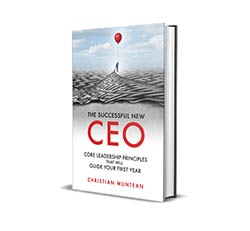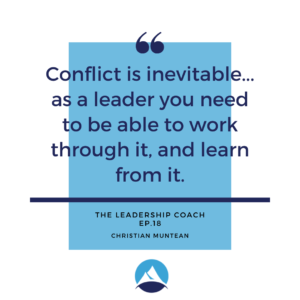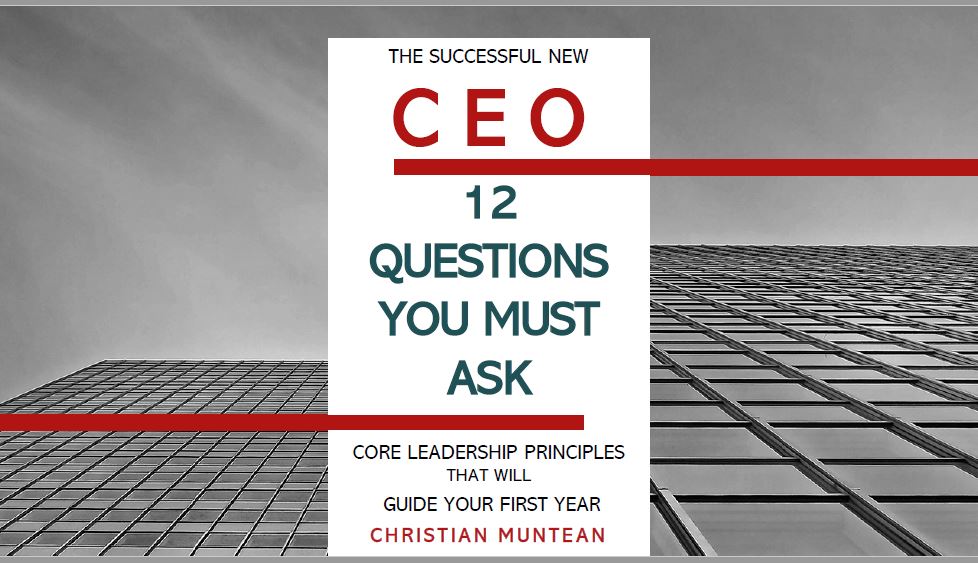Would You Rather..?


I recently heard a question:
Would you rather be part of a high-performing group or a group of high performers?
Good question. Here is another:
Remember group projects in school?
Some of the most creative and fun projects I ever worked on were group projects. Everyone worked hard together, contributed, and added their various strengths and perspectives.
But they were also some of the most frustrating projects. Ones where everyone wanted to work separately. Or people just wouldn’t work at all. In college, one of my “co-scholars” announced up front, “I’m not interested in this – so don’t count on me to do anything.”
Over time, I learned that many group projects were like this latter experience. Especially if we were graded as a group. Too many people were willing to let just a few others do all the work.
I have never understood that attitude.
I like being a part of a high-performing group. But those are rare. They often devolve into a group of high performers – and even in those cases – not everyone actually performs.
Team Norms and Organizational Culture
These groups were early experiences with organizational cultures.
Eventually, I learned about various models that try to describe the stages of team formation. You may have heard of the famous: Forming, Storming, Norming, Performing team development sequence. This was originally coined by psychologist Bruce Tuckman back in 1965.
What Tuckman (and all the other models) observed is a process that teams need to go through and complete to finally reach performance. The storming and norming phases are descriptions of how group culture is wrestled over and finally accepted.
Culture (described with the sociological term norms) is key to group performance.
But not all cultures are created equal.
Ideal Cultures are Cultured
In school, our groups were usually slapped together. We just had to survive the experience.
Once in a while, there were the happy accidents. We quickly figured out how to work together. Many times, however, the project never got beyond the storming phase.
It’s hard for a small group to predictably build an ideal culture. Especially one that is enjoyable and high performing. It’s even hard for a larger organization. Even when a happy accident occurs, and it does sometimes, it won’t be sustained accidentally.
Ideal cultures are created and sustained on purpose.
Culture is More Than Good Feelings
Many leaders misunderstand the importance of workplace culture. Because it is a “soft” topic – it’s often perceived to be the solution for “soft” problems.
In fact, the right workplace culture has a dramatic effect on “hard” issues as well. It directly impacts things like:
- Safety and Workers Compensation Claims
- Litigation and complaints
- Mistakes and failure work
- Turnover
- Process efficiency
- Customer service
- Innovation and decision making
All of which impact the bottom line. As well as the “soft” issues such as enjoying showing up to work on Monday morning.
Not all ideal cultures look the same – but they have the same ingredients
Ideal cultures can look many different ways. But they share the same set of dynamics or ingredients.
Most tend to emphasize a few of these dynamics more than others – but if any of these ingredients are missing – the ideal culture will be difficult to sustain.
The 6 Ingredients of Ideal Cultures: How to Attract the Best People and Produce the Best Performance
- Values-Based: Most organizations have something like a value statement. But few organizations are intentional about their values and basing their decisions and behaviors on them. Those that do perform better.
- Active Alignment: The leaders in the highest performing organizations emphasize alignment. They align their values and vision with their priorities and strategy and their practices and policies. Alignment improves communication, reduces conflict, reduces management effort, and focuses resources.
- Ownership and Accountability: The best organizations create ownership cultures. This includes a sense of pride and responsibility. Additionally, they regularly talk about their commitments, goals, progress, challenges, and successes. That’s another way of saying – they practice being accountable.
- Creates Safety: It’s impossible to have the kinds of conversation required to be values based, create alignment and be accountable if talking about hard issues doesn’t feel safe. Safety doesn’t emerge from cultures where disagreement is avoided and all potential triggers are purged. It comes from leaders who practice showing respect, listening, stay curious, admit their own mistakes. A sense of safety emerges when people experience resolved disagreements and conflict – not from avoiding them.
- Growth Focused but Performance Oriented: Ideal cultures are able to hold the tension between growth and performance. They understand that success is larger than mere accomplishment. But at the same time – all organizations exist to accomplish a purpose. The best companies nurture the growth of their people expecting that it’ll contribute to performance.
- Nimble and Experimentative: Ideal cultures avoid falling in love with their methods. They are focused on their vision. This allows them to adjust and flex methods and approaches as need be.
Reframing My First Question
Would you rather build a high-performing group or try to lead a group of high performers?
Take good care,
Christian
Further Reading
5 Ways Strong Leaders Become the Single Point of Failure
How to Pick Leaders of Unstoppable Teams
There are 𝟭𝟮 𝗰𝗿𝗶𝘁𝗶𝗰𝗮𝗹 𝗾𝘂𝗲𝘀𝘁𝗶𝗼𝗻𝘀 to ask before accepting a new CEO position. Do you know what they are? Instantly download my free e-book here.
Vision Building Sprints
If you or your team are wrestling with defining your vision and would like help, I’m offering the opportunity for a “Vision Sprint”. This is a dynamic calibrating exercise. We will tightly dial in on your vision for the year and the key steps you need to take to get there. I’m offering either individual sessions ($2500) or team sessions ($4000).
Contact me at christian@christianmuntean.com if interested in learning more or setting up a time.
The Successful New CEO – FREE BOOK OFFER
As an executive coach, I’ve found that the experiences for new executives (or experienced executives in new roles) tend to touch on familiar themes. No one’s situation is the same. But there are common principles that, when followed, do guide executives to success. I introduce those core principles in my new book, The Successful New CEO. I’d like to give you a free copy (just pay shipping)!
situation is the same. But there are common principles that, when followed, do guide executives to success. I introduce those core principles in my new book, The Successful New CEO. I’d like to give you a free copy (just pay shipping)!
The book is divided into four parts:
- Becoming an Executive: Leaders can only lead out of who they are. How do you become the kind of person who successfully and gracefully inhabits this role?
- Seven Essential Executive Skills: The skills that earned you this new role may not be the ones that you need in the role. What are the key leadership skills that become even more important at the executive level?
- Leading Your Leadership Team: More than likely, you’ll be leading other leaders. How do you lead a confident, effective leader? How do you build a team out of leaders?
- First Things: Where do you start? How do you quickly build credibility and engagement? What is too fast or too slow?
The goal of The Successful New CEO is to help you quickly gain the confidence of your team, successfully address the issues you will discover, score early wins, and set a course for a fruitful future.
If you’d like to see how this book will benefit you or someone you know, I’d like to make it available to you for free! Click Here.
Find the value of your company with my free assessment tool: The Value Builder System
The Value Builder System™ is a 13-minute online questionnaire that evaluates your business on the eight factors that contribute more to its attractiveness and value. These factors are scored on a scale of 1-100. Businesses that score over 80 are likely to command 70%-100% higher value than others.
THE LEADERSHIP COACH Podcast
In my podcast, THE LEADERSHIP COACH, we explore effective, high impact and enjoyable leadership. We talk about personal development and the attributes that all effective leaders possess. I interview other leadership experts who share their knowledge and tips to help you build the confidence to lead and learn the habits of good decision-making.
Opportunities
Free Resource: How To Accomplish More Without Doing More is a workbook I created to walk leaders through a process of helping you own your calendar, liberate your time, and still get more done. Download it for free!
Executive and Leadership Coaching: Do you feel overwhelmed? Are you not getting the results you expect from the effort you are putting in? Do you find yourself facing similar challenges time and time again? Would you like to change specific ways of relating or reacting? If you would like to experience predictable, measurable growth Contact me.
Profitable Exit Strategy Workshop: Are you a business owner or partner? Over 55? Starting to think about exiting your business or active management in the next 3-5 years?
- Are you curious about what your business might be worth?
- Would you like to discover the specific steps you need to take to increase its value and become highly attractive to a buyer?
- Are you planning on handing it over to family or employees and you want to ensure long-term success?
If so, contact me now
Categories
Get Christian’s Newest Book: Train to Lead

Download my free 10-page eBook:
How To Accomplish More Without Doing More:
Eight Proven Strategies To Change Your Life
Discover how to save eight hours during your workweek-even if you're too busy to even think about it. The resource every maxed out executive needs.

